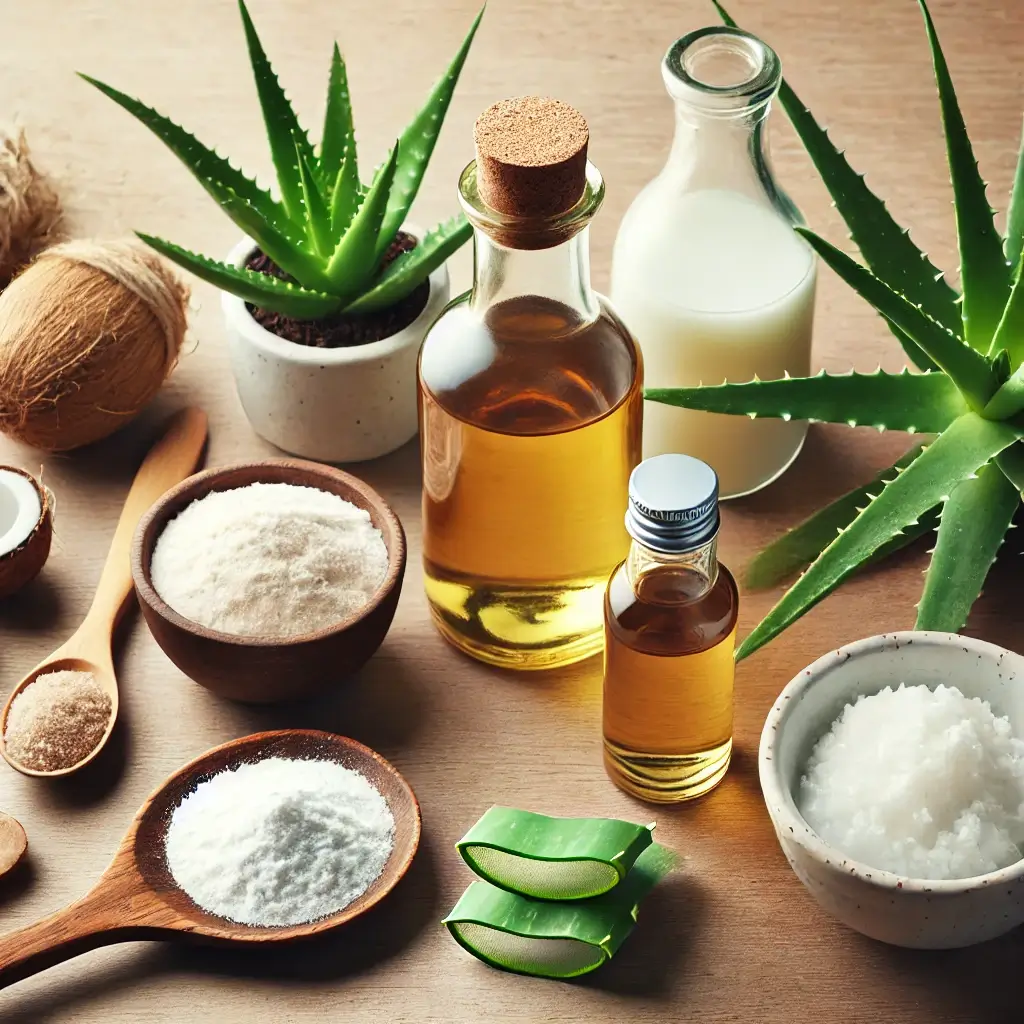Natural Remedies to Combat Dandruff
Even though shampoos designed specifically for dandruff are typically the most efficient therapy method, there are several home remedies you can attempt to alleviate dandruff. Take into consideration the following options:
The Power of Apple Cider Vinegar
Vinegar made from apple cider: To make a rinse, combine water and vinegar in precisely equal proportions. Following the application of shampoo, apply it to your scalp and allow it to rest for fifteen minutes before properly rinsing it out. It is possible that the acidity of apple cider vinegar can help reduce inflammation and fungus.
Coconut Oil: Nature’s Moisturizer
Coconut oil: Before shampooing, massage coconut oil into your scalp and work it into your hair. It can reduce flaking and add moisture.
Tea Tree Oil: A Natural Antifungal Solution
Tea tree oil, which possesses antifungal characteristics, could be beneficial in combating the fungus that is a potential contributor to dandruff. Before applying tea tree oil to your scalp, it is recommended that you first dilute a few drops of the oil with a carrier oil such as coconut oil. Cautiousness is advised because tea tree oil can potentially irritate some individuals’ skin.
Aloe Vera: Soothing Relief for Itchy Scalps
Aloe vera: The calming characteristics of aloe vera can help lessen the itching that is typically associated with dandruff occurring on the scalp. Find shampoos that contain aloe vera, or use fresh aloe vera gel on your scalp. Both of these options are available.
Baking Soda: A Versatile Dandruff Fighter
Soda baking: Baking soda is a multipurpose home ingredient used for various purposes, including as a cosmetic product. It may be used to promote healthy hair in a number of different ways. One of these ways is by gently massaging it into the scalp before bathing.
Exfoliating Your Scalp with Baking Soda
This straightforward method can exfoliate the scalp and remove dead skin cells, revitalizing the hair. To make a paste out of baking soda, simply combine a tiny amount of the powder with water. This will allow you to utilize baking soda as a scalp exfoliator. Next, using your fingertips, massage the mixture into your scalp in a circular manner throughout your entire head.
Precautions When Using Baking Soda
As baking soda has the potential to be abrasive, it is important to avoid applying it to sensitive or irritated areas. After you have massaged your hair for a few minutes, thoroughly rinse it with warm water and then proceed to your regular shampoo and conditioner routine.
Balancing Scalp pH with Baking Soda
Baking soda, in addition to being beneficial for exfoliating the scalp, can also help bring the scalp’s pH level into equilibrium. This may be of particular use to individuals who battle with an oily scalp, as it has the potential to help regulate oil production and reduce the obvious appearance of greasy hair.
Incorporating Baking Soda into Your Hair Care Routine
That said, including baking soda in your hair care regimen can be a straightforward and efficient strategy to maintain healthy and beautiful hair. It doesn’t matter if you want to exfoliate your scalp or control the amount of oil that your scalp produces; this multipurpose component has you covered. What are you waiting for? Why not try to see what kind of change it may make for your hair?
Important Considerations for Home Remedies
It is essential to keep going: The effectiveness of these treatments has only been the subject of a small amount of scientific investigation. Stop using the product if you have scalp issues or if you suffer irritation. If your dandruff is severe or if you have tried home cures for a few weeks and seen no improvement, you should seek the advice of a dermatologist or a medical professional. They can also suggest a medicated shampoo or another treatment strategy.
